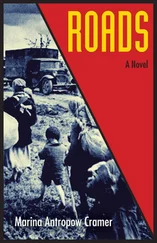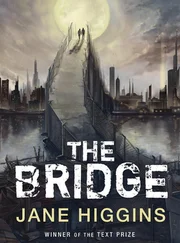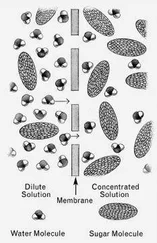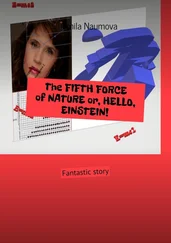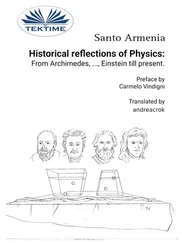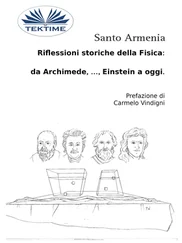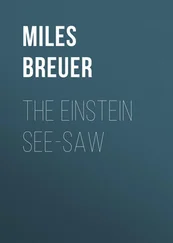Surely God must have it in for QCD!
The basic problem with quantum chromodynamics, the fundamental theory of quark behavior, was that the forces were simply too strong. All the mathematical tricks developed by generations of theoretical physicists, all the dodges and gimmicks and workarounds that had worked with weaker forces, were useless. The color force was the strongest in the universe, and it stoutly refused to be perturbed.
While he was still at CERN, Roger had invented a new approach, a convoluted expansion based on canonical variables that became smaller as the strength of the force increased. He had been so sure that it was the key to making reliable QCD predictions. But the lousy series wouldn’t converge!
The calculation on the screen had been his final hope, one last straw to be grasped at. Several months of work were down the drain. It should have worked, dammit. He couldn’t understand why it hadn’t. He combed his fingers through his thick brown hair. The trouble with taking on difficult problems that no one previously has ever been able to solve, he thought, is that you feel like such a fool when you can’t solve them, either.
Roger’s father had been a baker in King’s Lynn. It had been his custom to spend much of his free time and earnings at the corner pub near their terrace house. Roger had three older sisters, and it seemed that the family had never had enough money. At least, many an evening he had fallen asleep listening to his mother and father arguing about it.
Roger’s grandmother, he learned later, had intervened to change his life. She had never approved of her daughter’s marriage and had always kept her distance. However, she was fond of Roger, whom she said resembled her late husband. She had recognized his intelligence and arranged for him to take competitive examinations that had won him a generous scholarship to Harrow. When he was admitted, she had arranged to pay for his uniforms and the other costs out of her modest savings.
When Roger went up to Harrow, it had seemed a miraculous escape from a dreary and constricted life. For the first time he had classmates with interests somewhat like his own. Classmates who read books. Who, when they weren’t yammering about sports, could talk intelligently about astronomy and rockets and chemistry and electronics and computers and particle physics, all in the course of an evening. Harrow had computers and an enormous and venerable library. For the first time in his life — , Roger found that he had more interesting books available to him than he could read.
Of course, there were the “initiations” and the bullying and the snobbery. Roger had been tall for his age, but painfully thin. It was well known at the school that he was one of the “dole” students, there on charity because his working-class family could not afford the standard tuition. And there was also his East Country accent, which marked him as different more clearly than a brand on the forehead. Several bullies among the older boys had turned some of their attention in his direction. At first he had accepted it as inevitable unpleasantness and had learned to avoid certain people and places and times.
But then one rainy evening Greg Rutlege, a senior boy who was on the school rugby team and who seemed to have it in for Roger, had caught him as he was leaving the rooms of his math tutor. Roger was carrying a beautiful book on projective geometry, just lent to him by his tutor. It contained vivid pictures, along with the equations for projecting any three-dimensional object onto the two-dimensional plane of a computer screen. Roger was hurrying back to his quad, his head full of ideas that he wanted to try, when he found Greg blocking his way on the dark path. Greg had shoved him several times and then knocked the book from his hand. It tumbled with a splash into a puddle.
Roger became very, very angry. Through a red haze of rage he saw that he was now holding a brick from the walkway in his hand. It was as if he was watching from a distance the actions of someone else, someone who was bent on homicide. That person fully intended to kill his adversary. However, due to a general lack of coordination, he managed only to place a three-centimeter split in Greg’s scalp, just above the hairline. It was sufficient. The quantity of blood was most impressive to both of them. So were the six stitches that were used to close the wound after Roger had helped Greg to the infirmary.
Roger had been quite surprised when the other boy had calmly explained to the school physician that his good friend Roger had been demonstrating a new wrestling hold when they slipped, so that he accidentally banged his head on the stone portal of the quad. The doctor was skeptical, but he finally entered the explanation in his report.
Later Roger carefully cleaned the book with a towel and sponge, put blotting paper between the wet pages, and even ironed them to remove some of the swelling and wrinkles. But despite his best efforts, the book looked terrible. His tutor, however, seemed not to take much notice when Roger sheepishly returned the book, perhaps because the man was so fascinated by the graphics program that Roger had made using the equations in it.
After that incident, the older boys had called him “Killer Coulton” for a while, but had kept their distance. The “Killer” nickname had stuck, but it took on a new meaning during his years at the public school. Roger became an academic aggressor.
The red-lit image of a brick raised high in the act of braining the enemy, within the convoluted pathways of Roger’s cerebral cortex, had somehow been transmuted into a strategy for success. He sought out what were considered the hardest subjects, particularly in the sciences and math, then ferreted out the tricks and gimmicks that would allow him to understand them better than his classmates, to bludgeon his way to the top of the heap. He consistently outscored the others on examinations, sometimes by such a large margin that it was embarrassing.
The scholarship to Oxford had followed, almost as his due. It was not until he went up to Oxford that he finally managed to shed the “Killer” nickname. Oxford had been good for him in other ways, too. He had learned enough about physics and women there to know that he simply had to learn much more about both.
He set about doing so. He had somehow intuited, through the haze of academic selfsatisfaction that overlay the British academic scene, that diversity was important and that the inbreeding he saw around him might be avoided by moving to another institution where the learning might be different enough to cover the gaps that he sensed in his present state of understanding of physics.
Lincoln Jeffries, his Oxford tutor, had been annoyed when Roger announced that he had decided to take his Ph.D. at Cambridge. Old Linc had carefully explained that such a switch was the sign of a misfit, and that it would seriously compromise Roger’s chances of securing a permanent position at either institution. Line’s implicit assumption that the life of an Oxford don represented the pinnacle of Western civilization had convinced Roger, as much as anything else, that he was making the correct decision.
Roger had put his Cambridge thesis supervisor, a Nobel laureate, on notice from the start that he intended to do a first-rate thesis in theoretical particle physics. And it had happened just that way. Roger had stumbled onto a subtle aspect of quark-gluon interactions that no one had ever looked at before in the right way. His omnivorous plundering of the literature had turned up enough seemingly unrelated clues to show him the direction he needed to proceed. He could actually have finished his thesis in two years, but some unfinished business with a certain young lady who was doing her thesis in medieval history had made him decide to stay the extra year and to do a more thorough job.
Читать дальше

